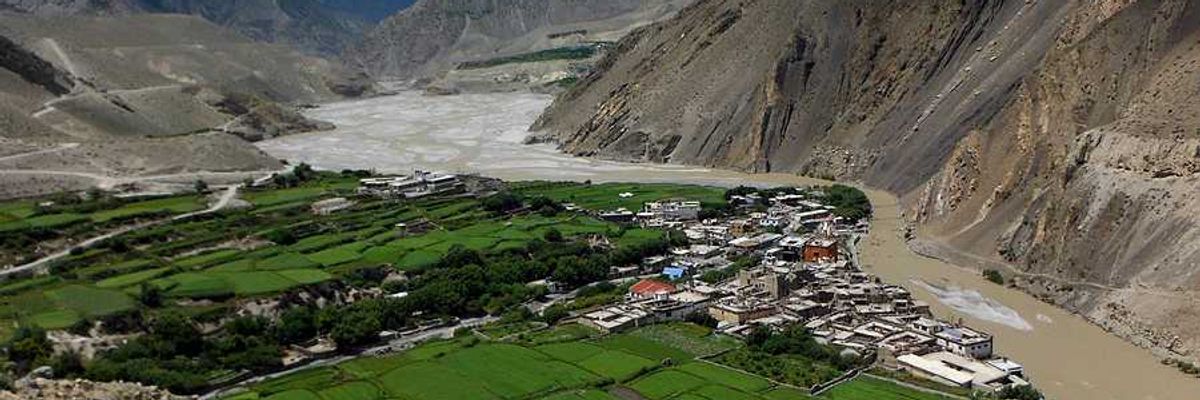budget
House passes controversial spending bill cutting EPA funds
House Republicans passed a $38.5 billion spending bill that significantly reduces funding for clean energy and climate programs.
In short:
- The bill proposes a 20% cut to the EPA's budget, reducing funds for science and environmental justice programs.
- It includes conservative policy riders, expanding mining, increasing oil and gas leases and blocking climate initiatives.
- Many provisions are unlikely to survive bicameral negotiations after the November elections.
Key quote:
“Rather than making sound investments to protect our air and water, preserve our national parks and ensure the environment we all share and live in remains clean and protected, the majority’s bill benefits the most egregious polluters and climate science deniers.”
— Rep. Rosa DeLauro (D-Conn.), ranking member on the House Appropriations Committee
Why this matters:
The bill's cuts to the EPA could hamper efforts to address climate change and environmental justice. Reductions in funding may affect public health, particularly in low-income and rural communities.
US EPA grapples with funding reductions
The U.S. Environmental Protection Agency faces significant operational challenges as it attempts to maintain staffing levels and core functions despite a nearly $1 billion budget cut.
In short:
- The EPA's budget for fiscal 2024 is reduced to $9.2 billion, affecting various programs.
- The agency plans to keep staffing around 15,130 full-time equivalents despite the cuts.
- Superfund program receives support from new "polluter pays" taxes, partially offsetting budget reductions.
Key quote:
"I will say that as with everybody else a level budget is, in fact, a cut because of inflation and extra costs."
— Stan Meiburg, executive director of Wake Forest University's Sabin Center for Environment and Sustainability
Why this matters:
With fewer resources, the EPA may struggle to enforce regulations, monitor pollution, and support state and local environmental programs. The reduction in budget could also impact the agency’s ability to respond to environmental emergencies, conduct scientific research, and promote sustainable practices. The ripple effects of such a significant financial blow extend beyond the agency itself, potentially jeopardizing public health and environmental quality.
New Zealand cuts climate programs amid budget overhaul
The New Zealand government has slashed funding for climate initiatives in its latest budget, sparking accusations of neglecting environmental protection.
In short:
- The budget prioritizes spending on law and order, education, and health, with no significant new investments in climate-related projects.
- Critics argue the government's approach is backward-looking, focusing on resilience rather than proactive climate mitigation.
- Significant cuts were made to various climate and environmental programs, including the Emissions Reductions Plan and the Climate Change Commission.
Key quote:
"The government’s biggest new investment in the environment is to implement reforms that are going to cause untold environmental harm through the fast track."
— Richard Capie, general manager of conservation, Forest and Bird
Why this matters:
New Zealand's reduced investment in climate action amid a global climate crisis could hinder efforts to combat environmental degradation and climate change. The budget cuts might undermine progress on sustainable development and resilience against future climate-related disasters.
New York City's compost project ends due to budget cuts
Mayor Eric Adams' budget cuts have ended New York City's 30-year-old composting program, affecting community farms, gardens, and green jobs.
In short:
- The NYC Compost Project, which began in 1993, provided compost for community farms, gardens, and street trees.
- The budget cuts have forced most composting organizations to cease operations, with only three remaining open at reduced capacity.
- More than 115 green jobs are threatened, and important community connections and green education efforts are at risk.
Key quote:
"[Volunteering with Nurture BK] made me for the first time experience a community I’ve been living in for 15 years. And Eric Adams has come by and destroyed all that for me."
— Justin Realmuto, Nurture BK volunteer
Why this matters:
The composting program, established to divert organic waste from landfills, has played a pivotal role in enriching urban soil, supporting local agriculture, and reducing the city’s carbon footprint. Community gardens and farms have particularly benefited from the nutrient-rich compost, which has fostered greener, more productive spaces in neighborhoods across the city.
Critics of the budget cuts argue that dismantling the composting program is a step backward in the fight against climate change and urban sustainability. They emphasize that the program's elimination undermines efforts to build a greener, more self-sufficient New York, highlighting the broader implications for community health and environmental justice.
Biden finalizes significant overhaul in federal regulations
How to keep climate change from breaking your budget
When people think of the impacts of climate change, they often focus on physical harm, such as loss of homes and businesses to wildfire, or illness due to floods, wildfire smoke or heat. That physical harm, however, can easily lead to financial devastation.
Rachel Samson: Climate policy that doesn’t make life unaffordable
The ongoing affordability crisis has brought into sharp focus the need for fairness and justice when it comes to the economic and societal transformations that will be required to achieve climate goals.









